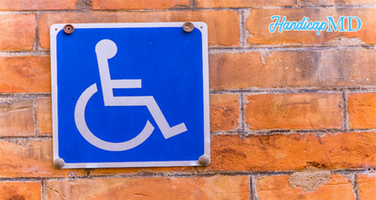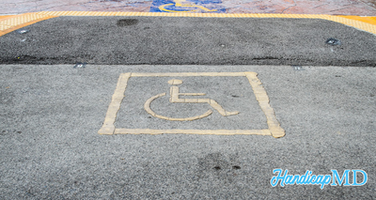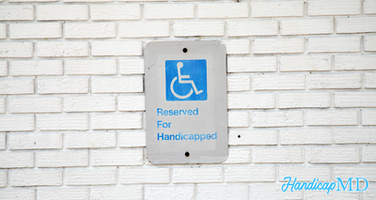
6 Qualifying Conditions for a Disabled Parking Permit
Introduction
When it comes to ensuring accessibility and convenience for individuals with disabilities, one of the essential tools is a disabled parking permit. These permits allow individuals with qualifying conditions to park in designated accessible parking spaces closer to their destinations. However, it is crucial to understand the specific qualifying conditions that make someone eligible for a disabled parking permit. In this comprehensive guide, we will explore the six qualifying conditions for a disabled parking permit, providing you with valuable insights into the requirements and procedures associated with obtaining one.
Understanding the Importance of Disabled Parking Permits
Access to disabled parking permits significantly enhances the quality of life for individuals with physical disabilities. They provide closer access to entrances of buildings and offer wider spaces, reducing the struggle of entering and exiting vehicles.
6 Qualifying Conditions for a Disabled Parking Permit
1. Mobility Impairments
Individuals with mobility impairments, such as those who have difficulty walking long distances or require the use of assistive devices like crutches, walkers, or wheelchairs, are eligible for a disabled parking permit. These permits allow them to park in designated accessible spaces that are closer to their intended destinations, reducing the physical strain and obstacles they may face.
Mobility impairments can significantly impact an individual's ability to navigate daily life, affecting their independence and access to various spaces and services. This article delves deep into the world of mobility impairments, shedding light on the challenges faced by those who have difficulty walking long distances or require the use of assistive devices such as crutches, walkers, or wheelchairs. We'll explore the importance of accessible parking, adaptive technologies, and the collective effort needed to create an inclusive society.
Understanding Mobility Impairments
Mobility impairments encompass a wide range of conditions that restrict an individual's movement, making tasks that many take for granted, like walking or climbing stairs, considerably more difficult. These impairments can be the result of congenital disabilities, injuries, or illnesses such as arthritis, muscular dystrophy, and cerebral palsy. Understanding these conditions is the first step towards fostering empathy and support for those affected.
Qualifying Conditions for Disabled Parking Permits
Mobility impairments that typically qualify an individual for a disabled parking permit can vary slightly by jurisdiction, but generally, they include conditions that significantly limit one's ability to walk or move around. Here's a list of common mobility impairments that are often considered eligible for obtaining a disabled parking permit:
Use of Assistive Devices: Individuals who cannot walk without the use of or assistance from a brace, cane, crutch, wheelchair, walker, or another person, or those who require the use of prosthetic devices.
Severe Difficulty Walking: Conditions that cause an individual to have severe difficulty walking 200 feet or more without stopping, including severe arthritis, neurological or orthopedic conditions.
Cardiac Conditions: People with heart conditions classified in severity as Class III or Class IV according to the standards set by the American Heart Association, indicating significant functional limitations.
Respiratory Disorders: Individuals who suffer from lung diseases to such an extent that their respiratory function is severely limited, as evidenced by a forced respiratory expiratory volume for one second when measured by spirometry, being less than one liter, or those who require the use of portable oxygen.
Legally Blind: Individuals who are legally blind may also qualify for disabled parking permits, as their visual impairment significantly limits their mobility.
Severe Limitations in Walking Due to a Neurological, Orthopedic, or Arthritic Condition: Conditions such as multiple sclerosis, severe arthritis, or cerebral palsy that severely impair one's ability to walk.
Amputations: Individuals who have had one or more limbs amputated and who cannot walk or have difficulty walking without the use of or assistance from a prosthetic device, another person, or a wheelchair.
Other Conditions: Some jurisdictions may also consider other conditions that cause similar functional mobility limitations, and a healthcare provider's certification may be necessary to attest to the individual's mobility impairment and need for a disabled parking permit.
It's important to note that the specific requirements and qualifications for a disabled parking permit can vary by state or country. Individuals seeking a disabled parking permit should consult with their healthcare provider and local Department of Motor Vehicles (DMV) or equivalent authority to understand the specific criteria and application process in their area.
2. Respiratory Disorders
Respiratory disorders significantly impact millions of lives globally, altering daily routines and challenging individuals' mobility. From the persistent coughs of Chronic Obstructive Pulmonary Disease (COPD) to the unpredictability of asthma attacks, the journey with respiratory illnesses is fraught with hurdles. Yet, amidst these challenges lies a testament to human resilience and the evolving landscape of medical intervention.
Individuals who have respiratory disorders that significantly impact their ability to walk long distances without experiencing severe shortness of breath or other respiratory symptoms qualify for a disabled parking permit. Conditions such as chronic obstructive pulmonary disease (COPD), asthma, or severe respiratory illnesses fall under this category.
Introduction to Respiratory Disorders
Respiratory disorders encompass a range of conditions affecting the lungs and airways, leading to breathing difficulties and impacting quality of life. These conditions can be particularly debilitating, affecting individuals' ability to perform everyday activities, including walking long distances.
Understanding Chronic Obstructive Pulmonary Disease (COPD)
COPD, a leading respiratory disorder, is characterized by obstructed airflow from the lungs, leading to breathing difficulties. Understanding its symptoms and causes is crucial for effective management and maintaining a semblance of normalcy.
Symptoms and Causes of COPD
COPD symptoms often include breathlessness, chronic cough, and frequent chest infections. Smoking is a primary cause, although exposure to air pollutants and genetic factors also play roles.
Managing COPD: Treatment and Lifestyle Adjustments
While COPD is incurable, treatments and lifestyle changes can manage symptoms. Quitting smoking, engaging in gentle exercise, and following prescribed medication regimes are pivotal.
Navigating Asthma Challenges
Asthma, another prevalent respiratory condition, involves inflammation of the airways, leading to wheezing, shortness of breath, and chest tightness.
Identifying Asthma Triggers and Prevention Strategies
Understanding and avoiding asthma triggers, such as allergens and irritants, are essential for prevention and management.
Asthma Management: Medications and Therapies
Inhaled corticosteroids and bronchodilators are mainstays in asthma treatment, helping to reduce inflammation and open airways.
Dealing with Severe Respiratory Illnesses
Severe respiratory illnesses, such as acute bronchitis and pneumonia, require prompt medical attention to prevent complications.
Recognizing Severe Respiratory Symptoms
Symptoms like high fever, chest pain, and difficulty breathing warrant immediate medical evaluation to prevent further deterioration.
Emergency Care for Respiratory Flare-Ups
Timely access to emergency care and adherence to treatment plans are critical for managing severe respiratory conditions, ensuring swift recovery and preventing long-term damage.
The Link Between Respiratory Disorders and Mobility
Respiratory disorders can significantly impede mobility, making it challenging for affected individuals to walk long distances without experiencing severe shortness of breath or fatigue. This limitation not only affects physical well-being but also independence and quality of life.
Disabled Parking Permits for Individuals with Respiratory Disorders
For those with significant mobility restrictions due to respiratory disorders, disabled parking permits offer a vital accommodation, providing closer access to buildings and reducing the need to walk long distances.
Eligibility Criteria for Disabled Parking Permits
To qualify for a disabled parking permit, individuals must meet specific criteria, demonstrating that their respiratory condition severely limits mobility.
How to Apply for a Disabled Parking Permit
The application process for a disabled parking permit involves medical certification of the disability and submission of required documents to the appropriate local authority.
Lifestyle Modifications for Improved Respiratory Health
Adopting healthy lifestyle changes can significantly improve respiratory health and overall well-being.
Diet and Exercise Tips for Respiratory Well-being
A balanced diet rich in fruits, vegetables, and lean proteins, along with regular, gentle exercise, can enhance lung function and resistance to respiratory infections.
The Role of Air Quality in Respiratory Health
Minimizing exposure to pollutants and allergens indoors and outdoors is crucial for maintaining healthy airways, especially for those with respiratory disorders.
3. Visual Impairments
People with visual impairments, including blindness or low vision, may face challenges in navigating parking areas safely. To ensure their safety and accessibility, individuals with visual impairments can obtain a disabled parking permit. This permit allows them to park in designated accessible spaces, which are typically equipped with features such as auditory cues or tactile indicators to assist visually impaired individuals.
In today's society, ensuring accessibility and safety for all, including those with visual impairments, is paramount. People living with blindness or low vision face unique challenges in their daily lives, particularly when navigating public spaces such as parking areas. This comprehensive guide delves into the world of visual impairments, focusing on the obstacles encountered in parking areas and the empowering role of disabled parking permits.
Understanding Visual Impairments
Visual impairments encompass a range of conditions, from partial sight to complete blindness. These conditions can significantly impact an individual's ability to navigate environments that many take for granted. This section will explore the different types of visual impairments and their implications for daily mobility.
Challenges in Parking Areas for the Visually Impaired
Parking areas, with their moving vehicles and often chaotic layout, pose significant risks for those with visual impairments. This part of the article will shed light on the common obstacles faced and share firsthand experiences from the visually impaired community.
The Importance of Disabled Parking Permits
Disabled parking permits are crucial in providing safer and more accessible parking options. This section will guide readers through the eligibility criteria, application process, and the benefits these permits offer to individuals with visual impairments.
Importance of Accessibility for the Visually Impaired
Accessibility is not just about physical spaces but also about the policies and tools, like disabled parking permits, that acknowledge and address the unique challenges faced by those with visual impairments. These measures ensure that individuals can maintain a sense of autonomy and engage fully with their community.
Types of Visual Impairments for Disabled Parking Permits
Eligibility for disabled parking permits often hinges on legal criteria that define disability. Visual impairments that significantly restrict mobility and pose safety risks in navigating parking lots and streets typically qualify. This section explores common qualifying conditions and the rationale behind their inclusion.
When it comes to visual impairments that may qualify an individual for a disabled parking permit, it's important to understand the spectrum of conditions that can affect one's vision to the extent that it impairs their mobility and ability to navigate public spaces safely. Here are some of the common types of visual impairments that might be considered when issuing disabled parking permits:
1. Total Blindness
Total blindness refers to the complete lack of vision and light perception. Individuals who are totally blind may require the use of a white cane, a guide dog, or the assistance of another person for navigation, making proximity to their destination crucial for safety and accessibility.
2. Legal Blindness
Legal blindness is defined in many jurisdictions as having a visual acuity of 20/200 or less in the better eye with the best possible correction, or a visual field that is 20 degrees or less. While some people who are legally blind retain some usable vision, their impairment can significantly hinder their ability to move safely through parking areas and traffic.
3. Low Vision
Low vision is a term used to describe a significant visual impairment that cannot be fully corrected with glasses, contact lenses, medication, or surgery. Individuals with low vision may have some useful sight but still face challenges in depth perception, color differentiation, and visual clarity, affecting their ability to navigate parking lots and pedestrian areas safely.
4. Color Blindness
Severe color blindness, particularly in cases where it impedes the ability to recognize traffic signals and signs, can be a mobility issue in navigating through parking areas and streets. While not all cases of color blindness will qualify for a disabled parking permit, those with extreme difficulties may be considered on a case-by-case basis.
5. Night Blindness
Night blindness, or nyctalopia, makes it extremely difficult for individuals to see in low light or darkness. This condition can make navigating to and from a vehicle in poorly lit parking areas particularly hazardous.
6. Peripheral Vision Loss
Loss of peripheral vision can significantly affect one's spatial orientation and ability to navigate safely through environments, including parking lots. Individuals with conditions such as glaucoma, which can lead to peripheral vision loss, may find a disabled parking permit essential for accessing buildings and facilities.
7. Progressive Vision Diseases
Conditions like macular degeneration, diabetic retinopathy, and retinitis pigmentosa can lead to progressively worsening vision, making it increasingly difficult for affected individuals to navigate through public spaces safely over time.
Navigating the Application Process
Applying for a disabled parking permit involves providing proof of impairment through medical certification and adhering to specific application procedures. This segment offers a step-by-step guide to the application process, aiming to streamline what can often be a daunting task.
Impact of Visual Impairments on Mobility
Visual impairments can drastically affect an individual's ability to move about safely and confidently. This part of the article highlights the daily commuting challenges faced by the visually impaired and underscores the importance of disabled parking permits in mitigating these challenges.
Legal Framework and Rights
Understanding the legal protections and rights is essential for advocating for accessibility. This segment will discuss the ADA regulations and the rights of individuals with disabilities in accessing public amenities like parking.
4. Cardiovascular Conditions
Individuals with cardiovascular conditions that limit their ability to walk long distances without experiencing significant discomfort, fatigue, or risk to their health are eligible for a disabled parking permit. Conditions such as congestive heart failure, coronary artery disease, or cardiac arrhythmias fall under this category. Having a disabled parking permit enables individuals with cardiovascular conditions to conserve their energy and reduce the strain on their hearts.
Cardiovascular conditions encompass a wide range of heart and blood vessel issues that can significantly impact an individual's overall health and daily activities. These conditions can lead to challenges such as reduced mobility, fatigue, and increased risk during physical exertion, making tasks like walking long distances particularly difficult.
Eligibility for Disabled Parking Permits
Eligibility for a disabled parking permit is crucial for those whose cardiovascular health limits their mobility. This section will delve into the specific criteria that define eligibility and outline the application process, providing a clear pathway for individuals in need.
Understanding Cardiovascular Conditions and Mobility
The relationship between cardiovascular conditions and mobility is complex. This part of the article will explore how these health issues affect an individual's ability to move freely and offer strategies to manage these mobility challenges effectively.
The Importance of Accessibility for Cardiovascular Patients
Accessibility is paramount for individuals with cardiovascular conditions. This segment will discuss the importance of accessible environments and transportation options, highlighting the benefits of such inclusivity for overall well-being.
Exercises and Activities Suitable for Cardiovascular Patients
Engaging in physical activity is essential for cardiovascular health, yet it must be done safely. This section will suggest exercises and activities that are beneficial and safe for those with cardiovascular conditions, emphasizing the importance of maintaining an active lifestyle within health limitations.
Diet and Nutrition for Cardiovascular Health
Diet plays a significant role in managing cardiovascular conditions. Here, we'll provide guidance on heart-healthy eating habits and identify foods that should be avoided to maintain optimal cardiovascular health.
Cardiovascular Conditions Qualifying for a Permit
Chronic Heart Conditions: Individuals with chronic heart conditions, such as congestive heart failure or coronary artery disease, that significantly impair their mobility may be eligible for a disabled parking permit. These conditions can lead to extreme fatigue and shortness of breath, making walking long distances challenging.
Post-Cardiac Surgery Recovery: Patients recovering from major cardiac surgeries, such as bypass surgery or heart transplant, often experience temporary or long-term mobility limitations. During the recovery period, a disabled parking permit can be invaluable in facilitating easier access to medical care and rehabilitation.
Peripheral Arterial Disease (PAD): PAD causes the narrowing of peripheral arteries, most commonly in the legs, leading to pain and mobility issues. Individuals with severe PAD that limits walking ability may qualify for a disabled parking permit.
Severe Arrhythmias: Irregular heartbeats that result in fainting spells or dizziness can impede an individual's ability to walk safely. Those with severe arrhythmias that impact mobility might be eligible for a permit.
Pulmonary Hypertension: This condition involves high blood pressure in the arteries to the lungs, making physical exertion extremely difficult and potentially dangerous. Patients with pulmonary hypertension that affects their mobility may qualify for a permit.
Heart Failure: Navigating Mobility with Heart Failure
Heart failure, a chronic and progressive condition, impairs the heart's ability to pump blood efficiently, leading to fatigue, shortness of breath, and reduced mobility. For many patients, these symptoms can significantly limit their ability to walk long distances, making access to convenient parking not just a necessity but a critical component of their daily life management.
Eligibility Criteria for a Disabled Parking PermitThe eligibility for a disabled parking permit varies by jurisdiction but generally includes individuals with significant mobility limitations due to heart failure. Key criteria include:
- Demonstrated mobility impairment that significantly restricts the ability to walk.
- Certification from a healthcare provider that outlines the nature of the heart failure and its impact on mobility.
5. Neurological Disorders
Neurological disorders that affect an individual's mobility or coordination can make it challenging to navigate parking areas safely. Conditions such as multiple sclerosis, Parkinson's disease, or severe cases of epilepsy fall under this category. By obtaining a disabled parking permit, individuals with neurological disorders can access designated parking spaces that accommodate their unique needs.
Neurological disorders encompass a wide range of conditions that affect the brain, spinal cord, and nerves. From multiple sclerosis and Parkinson's disease to stroke survivors, these conditions can significantly impact an individual's mobility, coordination, and muscle strength, making tasks like walking long distances exceedingly challenging.
Eligibility for Disabled Parking Permits with Neurological Conditions
Eligibility for a disabled parking permit often includes those with neurological disorders that impair their mobility. The key is demonstrating how the specific condition affects one's ability to walk or necessitates the use of mobility aids such as walkers, canes, or wheelchairs.
Neurological disorders that may qualify an individual for a disabled parking permit encompass a wide range of conditions affecting the nervous system, which can impair mobility, coordination, strength, and other functions necessary for walking. Some of these conditions include:
Neurologic Conditions Qualifying for a Permit
Multiple Sclerosis (MS): A disease where the immune system attacks the protective covering of nerves, causing inflammation and consequent physical and cognitive impairments including mobility issues.
Parkinson's Disease: A progressive neurological disorder that affects movement, causing tremors, stiffness, and slowing of movement, all of which can hinder an individual's ability to walk distances.
Stroke: Individuals who have suffered a stroke may experience paralysis, weakness, or lack of coordination in one side of their body, making walking and balance a challenge.
Amyotrophic Lateral Sclerosis (ALS): Also known as Lou Gehrig's disease, ALS affects nerve cells in the brain and spinal cord, leading to loss of muscle control and mobility.
Epilepsy: In cases where seizures are frequent and unpredictable, individuals may qualify for a disabled parking permit due to the potential sudden loss of consciousness or control, affecting their ability to safely move about.
Spinal Cord Injuries: Depending on the severity, spinal cord injuries can result in partial or complete paralysis, significantly affecting mobility.
Peripheral Neuropathy: This involves damage to the peripheral nerves and can cause weakness, numbness, and pain, usually in the hands and feet, making walking difficult.
Cerebral Palsy: A group of disorders affecting movement, muscle tone, and posture, stemming from early brain development issues, which can impair the ability to walk independently.
Dystonia: A movement disorder characterized by involuntary muscle contractions, causing repetitive movements or abnormal postures that can affect mobility.
Traumatic Brain Injury (TBI): Depending on the severity, TBI can lead to physical and cognitive impairments, including difficulties with mobility and coordination.
Eligibility for a disabled parking permit due to a neurological disorder typically requires documentation from a healthcare provider detailing how the condition affects mobility. The specific criteria and application process can vary by location, so it's important to consult local regulations to understand the requirements in your area.
6. Orthopedic Impairments
Individuals with orthopedic impairments that significantly limit or impair their mobility, such as those with severe arthritis, joint replacements, or limb amputations, qualify for a disabled parking permit. These permits ensure that individuals with orthopedic impairments have convenient access to parking spaces that are closer to their destinations, reducing the physical challenges they may face.
Orthopedic impairments encompass a range of conditions that affect the musculoskeletal system, significantly limiting one's mobility and daily activities. These impairments can be congenital, resulting from birth anomalies, or acquired due to diseases like severe arthritis, accidents, or aging. The key to managing these conditions lies in early diagnosis, appropriate medical interventions, and adaptive strategies to enhance quality of life.
The Impact on Mobility
Mobility challenges can transform routine tasks into daunting hurdles. This section delves into the daily realities faced by those with orthopedic impairments and introduces various mobility aids, from canes and walkers to advanced prosthetics, that can aid in navigating these challenges.
Orthopedic Conditions Qualifying for a Permit
Orthopedic impairments that qualify for a disabled parking permit generally include conditions that significantly limit or impair an individual's mobility. These conditions can make it challenging to walk long distances or navigate certain environments without assistance. Here are some common orthopedic impairments that often qualify for a disabled parking permit:
Severe Arthritis: This includes conditions like osteoarthritis and rheumatoid arthritis that severely limit joint movement and cause significant pain, making walking or standing for extended periods difficult.
Joint Replacements: Individuals who have undergone major joint replacement surgeries, such as hip or knee replacements, may qualify due to the reduced mobility and rehabilitation period associated with these procedures.
Limb Amputations: The loss of a limb, especially lower limbs, significantly affects mobility. Amputees often qualify for disabled parking permits to facilitate easier access to buildings and services.
Spinal Cord Injuries: These injuries can lead to paralysis or significant mobility impairments, requiring the use of wheelchairs or other mobility aids.
Congenital Conditions: Conditions present from birth that affect mobility, such as cerebral palsy or spina bifida, often qualify an individual for a disabled parking permit.
Severe Limb Deformities: Significant deformities of the limbs that impair mobility and make walking or standing difficult can qualify an individual for a parking permit.
Neurological Disorders: Disorders that affect the nervous system and result in mobility impairments, such as multiple sclerosis or Parkinson's disease, may also qualify.
Stroke Survivors: Individuals who have suffered a stroke may experience paralysis or severe weakness in their limbs, affecting their ability to walk and necessitating closer parking access.
It's important to note that the specific criteria for qualifying for a disabled parking permit can vary by jurisdiction. Typically, an application must be supported by medical certification from a healthcare professional, attesting to the nature and extent of the mobility impairment.
Legal Rights and Accommodations
Understanding one's legal rights is crucial for individuals with orthopedic impairments. This segment explains disability laws and the entitlement to accommodations like disabled parking permits, ensuring equal opportunities and accessibility in public and private spaces.
Applying for a Disabled Parking Permit: A Step-By-Step Process
Obtaining a disabled parking permit involves a relatively straightforward process. It requires medical certification of your qualifying condition, application to the local Department of Motor Vehicles (DMV), and payment of applicable fees.
Applying for a Disabled Parking Permit online, through handicapmd.com, is streamlined for convenience. Below is a simplified step-by-step guide based on the outline you provided. Please note, the actual process may vary slightly, and it's important to follow the specific instructions on the website:
Step 1: Sign Up Online
- Navigate to the Website: Go to "handicapmd.com" or click GET DMV PERMIT ONLINE
- Create an Account: Look for the sign-up or registration section on the homepage. You will likely need to provide basic information such as your name, email address, and possibly create a password to set up your account.
Step 2: Talk to the HandicapMD Doctor
- Schedule an Appointment: Once your account is set up, you may have the option to schedule an appointment or request a consultation with a HandicapMD doctor. This could involve selecting a convenient time and date through an online calendar or appointment scheduling feature.
- Virtual Consultation: The consultation with the doctor might be conducted via a video call, phone call, or through a messaging system, depending on the platform's capabilities and your preferences.
Step 3: Discuss Your Qualifying Condition
- Prepare Documentation: Have any medical records or documentation related to your condition accessible for the consultation. This might include reports from your primary care physician, specialist evaluations, or any diagnostic results.
- Consultation: During the consultation, discuss your mobility impairment or condition that qualifies you for a disabled parking permit. Be honest and detailed about how your condition affects your daily mobility and why a disabled parking permit is necessary.
- Ask Questions: Use this opportunity to ask any questions about the application process, the duration of the permit's validity, or any other concerns you might have.
Step 4: Get Approved & Your Disabled Placard is Emailed
- Approval: If the HandicapMD doctor determines that you meet the criteria for a disabled parking permit, they will approve your application.
- Receiving Your Placard: Following approval, the platform will email you the disabled parking placard or a temporary permit, depending on their process. Instructions on how to use the placard, as well as any rules and regulations, should also be provided
Frequently Asked Questions (FAQs)
FAQ 1: How can I apply for a disabled parking permit?
To apply for a disabled parking permit, you need to contact the local Department of Motor Vehicles (DMV) or the relevant authority in your jurisdiction. They will provide you with the necessary application forms and guide you through the application process.
FAQ 2: What documents do I need to provide when applying for a disabled parking permit?
The required documents may vary depending on your jurisdiction, but common documents include a completed application form, a medical certification from a healthcare professional, and identification documents. It is best to check with your local DMV for the specific requirements.
FAQ 3: Is a disabled parking permit valid in all states?
While disabled parking permits are generally recognized across different states, it is essential to familiarize yourself with the specific rules and regulations of the state you are visiting. Some states may have additional requirements or restrictions.
FAQ 4: Can I use someone else's disabled parking permit?
No, disabled parking permits are issued to individuals with qualifying conditions, and they are non-transferable. It is illegal to use someone else's permit unless you are assisting the permit holder.
FAQ 5: How long is a disabled parking permit valid?
The validity period of a handicap placard varies depending on the jurisdiction. It can range from several months to a few years. It is crucial to review the expiration date on the permit and renew it when necessary.
FAQ 6: Can I use a disabled parking permit in private parking lots?
While disabled parking permits generally apply to public parking spaces, private parking lots may have their own regulations. It is advisable to check with the property owner or management to understand the rules regarding disabled parking in private lots.
Obtaining a disabled parking permit is a vital step towards ensuring accessibility and convenience for individuals with qualifying conditions. By understanding the six qualifying conditions for a disabled parking permit, you can navigate the application process with confidence and enjoy the benefits of accessible parking spaces. Remember to consult the relevant authority in your jurisdiction for accurate information and requirements. With a disabled parking permit, individuals with qualifying conditions can experience greater mobility, independence, and ease in their daily lives.
Conclusion: Ease Mobility, Improve Quality of Life, Stress-Free Process to Get a DMV Tag Online
By understanding the six essential qualifying conditions for a disabled parking permit, individuals can navigate the process with confidence. These permits are vital tools in improving the lives of those facing mobility challenges due to various health conditions. They provide easier access to facilities, less physical strain, and an overall improved quality of life.
.png)






